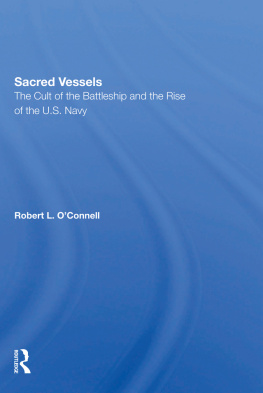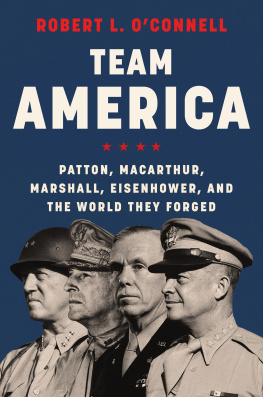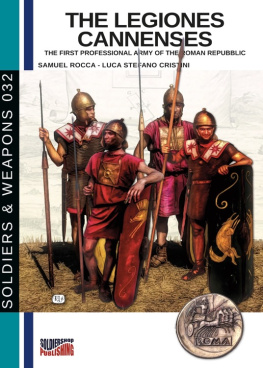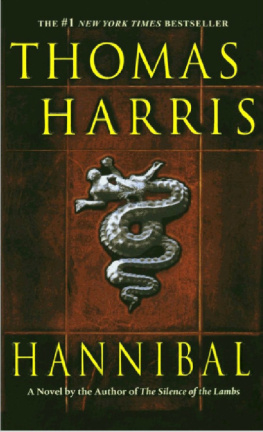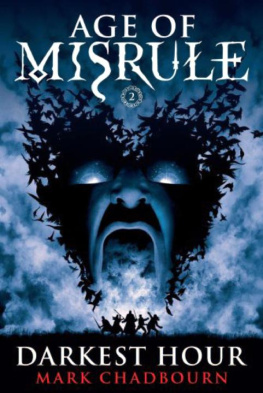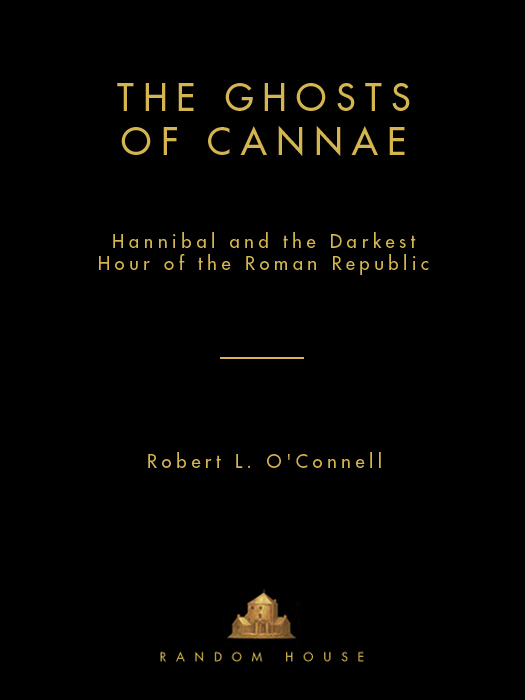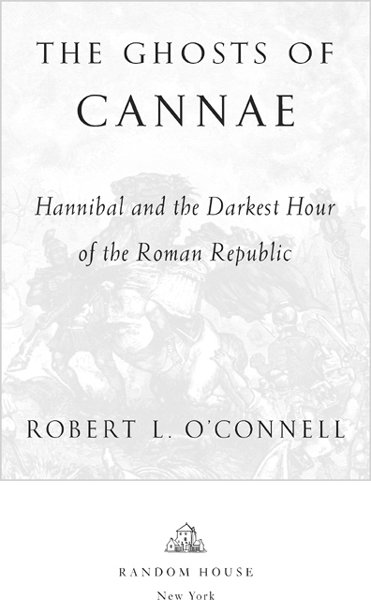CAST OF CHARACTERS
Agathocles of SyracuseInvaded Carthaginian North Africa in 310 B.C. and subsequently won a victory in the field, which prompted the revolt of native Libyans before Agathocles was forced to withdraw. This invasion revealed how vulnerable Carthage was at home.
Antiochus IIIBasileus of the Seleucid Empire, he made the mistake of hiring Hannibal as a military consultant after the Second Punic War, and then allowed himself to be drawn into a disastrous war with Rome that ended with defeat at the Battle of Magnesia in 189 B.C.
Appius ClaudiusRoman survivor of Cannae who helped Scipio Africanus put down the mutiny at Canusium and who later joined Marcellus at the siege of Syracuse.
ArchimedesThe great Greek mathematician who organized the defense of Syracuse against Rome.
Hamilcar BarcaHannibals father, and a commander during the First Punic War. Hamilcar later established the family empire in Spain and is thought to be the source of his sons hatred of Rome.
Hannibal BarcaInstigator of the Second Punic War, invader of Italy, and among the most capable generals in history.
Hasdrubal BarcaBrother of Hannibal. He was left behind in Spain to guard the family holdings during the Second Punic War. He later invaded Italy over the Alps and was subsequently killed at the Battle of the Metaurus in 207 B.C.
Mago BarcaBrother of Hannibal. He played a vital role at Cannae and later returned to Spain, where he struggled against the Romans. He too invaded Italy in 206 and subsequently died from a wound he received there.
Cato, M. PorciusA Roman politician and soldier. He was an archetype of conservatism and was a lifelong enemy of Scipio Africanus, not to mention Carthage.
Q. Fabius MaximusRoman consul and dictator who devised the unpopular strategy of avoiding battle with Hannibal and relying on attrition instead.
Cn. Fulvius FlaccusBrother of the consul Q. Fulvius Flaccus, and the losing general at the First Battle of Herdonea. He was tried for treason, and his surviving troops were exiled to join the legiones Cannenses.
Q. Fulvius FlaccusRoman consul and important commander in the Second Punic War. He was one of the key participants in the siege of Capua.
Flaminius, CaiusRoman consul and general who made a career of assaulting the Gauls and giving their conquered lands to Roman colonists. He was ambushed by Hannibal at Lake Trasimene and was killed along with much of his army.
Flaminius, T. QuinctiusRoman general and victor at the Battle of Cynoscephalae, which effectively finished Philip V. Flaminius later was sent to Bithynia to hunt down Hannibal.
Hanno the GreatThe leader of the Carthaginian opposition to the Barcid agenda. He was the Barcids opponent during the Second Punic War and appears to have spoken for the interests of commercial agriculture.
Hasdrubal (cavalry commander)Brilliantly led the Celtic and Spanish cavalry at Cannae.
Hasdrubal GisgoLongtime Carthaginian commander, first in Spain and then in North Africa during the Second Punic War. Not a great soldier, but extremely persistent. Also, the father of Sophonisba.
Hasdrubal the HandsomeCarthaginian politician and Hamilcar Barcas son-in-law. He took over the Barcid holdings in Spain after Hamilcars death. Hasdrubal the Handsome was assassinated in 221 and replaced by Hannibal.
Hippocrates and EpicydesCarthaginian brothers of Syracusan descent whose maneuvers proved to be the catalyst for Syracuses revolt against Rome.
IndibilisA powerful local Spanish chieftain whose shifting loyalties came to epitomize the treacherous political environment in Iberia during the Second Punic War.
Laelius, GaiusLongtime military subordinate to Scipio Africanus. A talented commander in his own right, he played an important role in securing the North African countryside during the Roman invasion that would lead to Carthages surrender.
Laevinus, M. ValeriusCapable Roman commander in Greece during the first of Romes wars against Philip V. He later served in Sicily.
Sempronius Longus, T.Roman consul defeated at the Battle of the River Trebia in 218 B.C.
MaharbalOpportunistic Carthaginian cavalry commander who challenged Hannibal to march on Rome after Cannae.
Marcellus, M. ClaudiusOne of the key Roman generals during the Second Punic War, and conqueror of Syracuse. Marcellus was an extremely belligerent commander who was killed in one of Hannibals ambushes in 208.
L. Marcius, SeptimusRoman commander in Spain who rallied the survivors after the defeat of the elder Scipio brothers.
MasinissaNumidian prince and later king of Massylia in North Africa. He was an excellent cavalry commander who first served with the Carthaginians in Spain and later switched sides to join the Romans. He would prove a potent force in Carthages defeat and later destruction.
MuttinesTalented Numidian cavalry commander who went over to the Roman side in Syracuse and subsequently became a citizen.
Nero, C. ClaudiusRoman general in the Second Punic War in both Spain and Italy. It was his surprise march to the Metaurus that probably sealed Hasdrubal Barcas fate.
Paullus, L. AemiliusOne of the two consuls defeated at Cannae. Paullus was killed there.
Philip VKing of Macedon who after Cannae made an alliance with Hannibal and subsequently fought two wars with Rome.
Pleminius, QuintusA Roman legate whose brutal behavior at Locri toward the towns citizens and toward his fellow Roman commanders almost brought about the disgrace of Scipio Africanus.
Prusias IIKing of Bithynia who employed Hannibal during the 180s as a city planner and admiral. Prusias ultimately betrayed Hannibal.
PyrrhusEpirote king who invaded Italy and fought the Romans in a series of three costly battles between 280 and 275 B.C.


